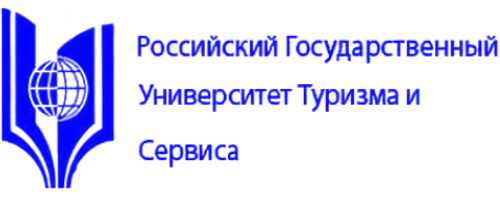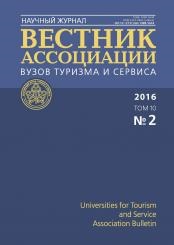Volgograd, Russian Federation
The issue of training in the tourism sector is one of the most priorities. Today tourism is the most promising, rapidly developing social, cultural, and leisure activities. The article describes tourist activities from the point of view of its staffing. The main purpose is to identify the peculiarities of professional education in the field of tourism, to define a circle of competences, which a specialist in this field should have. The specificity of the regions of our country requires more attention to the development of skills in the sphere of tourism. System of professional education in the sphere of tourism should be comprehensive, i. e. it should foresee professional integration of theory and practice, formation and correction of professional values, motivation, and quality and virtues of personality. Tourism development is one of the promising directions of optimization of cultural and social-economic growth of life of population of regions. The experience of the Olympic and Paralympics games in Sochi in 2014 shows that the organization of international sports events allows to implement projects and programs for the optimization and development of tourist potential. In this regard, most of the educational institutions of regions and cities aim at training highly qualified personnel not only in tourism, but also in related fields. Modern trends in the tourism sector must respond to prevailing needs, the education and training of specialists in the sphere of tourism. Training should be tailored to actual customers of present and future tourist market. Thus, the article aims to examine the specifics of formation of professional competencies of personnel of tourism sector, which are necessary for the future development of the tourism industry of our country and its separate regions.
tourism, professionalism, competence, management, tourism, professional education
1. Babkin A.V. Spetsial´nye vidy turizma M: Sov. sport, 2008. 252 s.
2. Buylenko V.F. Turizm. Uchebnik. Rostov-n/D, Krasnodar, 2008.
3. Zholdak V.I., Kvartal´nov V.A. Osnovy menedzhmenta v sporte i turizme: organizatsionnye osnovy: Uchebnik.T. 1. M., 2001.
4. Zorin I.V. Teoreticheskie osnovy professional´nogo turisticheskogo obrazovaniya. M.: Sov. sport, 2001.
5. Kvartal´nov V.A. Teoreticheskie osnovy stanovleniya i razvitiya sistemy nepreryvnogo professional´nogo obrazovaniya v sfere turisticheskoy deyatel´nosti. Dis. … d-ra ped. nauk. M., 2000.
6. Konovalova Yu.O. K voprosu o monitoringe sformirovannosti kompetentsiy v sisteme vysshego professional´nogo obrazovaniya. Iz opyta raboty rossiyskikh i zarubezhnykh vuzov. Vysshee obrazovanie segodnya. 2012. № 6. S. 14-18.
7. Kudryavtseva E. Sovremennye podkhody k probleme formirovaniya i ispol´zovaniya modeley kompetentsiy. Upravlencheskoe konsul´tirovanie. Aktual´nye problemy gosudarstvennogo i munitsipal´nogo upravleniya. 2012. № 1. S. 166-177.
8. Molchanova N.V. Sportivnye meropriyatiya kak faktor turistskogo razvitiya regionov Rossii// Privolzhskiy nauchnyy vestnik. 2014. № 11 (39).
9. Morozova S.I., Vasil´eva A.S. Ekonomicheskoe vliyanie Olimpiyskikh igr na ekonomiku regiona i strany provedeniya (na primere zimney Olimpiady 2014 g.). Problemy sovremennoy ekonomiki: Materialy III mezhdunar. nauch. konf. (g. Chelyabinsk, dekabr´ 2013 g.). Chelyabinsk: Dva komsomol´tsa, 2013.
10. Slovar´-spravochnik sovremennogo rossiyskogo professional´nogo obrazovaniya / avtory-sostaviteli: Blinov V.I., Voloshina I.A., Esenina E.Yu., Leybovich A.N., Novikov P.N. Vyp. 1. M.: FIRO, 2010. [Elektronnyy resurs]. Rezhim dostupa: http://www.pgtiperm.ru/page.php?id=68 (data obrashcheniya: 12.01.2015).
11. Barros, J.C. A Projecção do Quotidiano no Turismo e no Lazer, Lisboa, Instituto Superior da Ciências Sociais e Políticas. 2004. 216 p.





